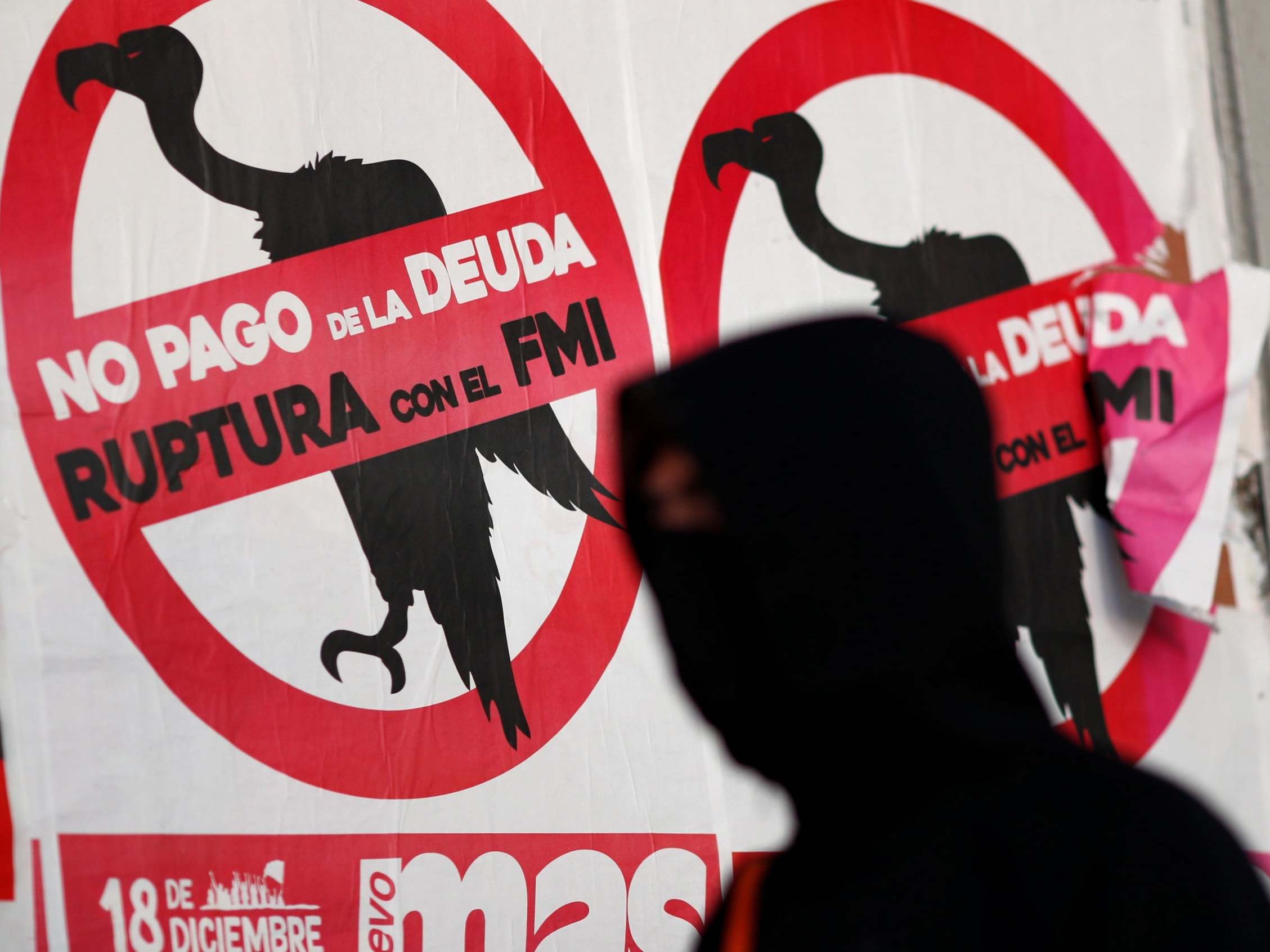Coronavirus: Poor countries face debt crisis ‘unlike anything we have seen’
Repayments now more expensive due to market volatility

From Angola to Jamaica to Ecuador to Zambia, the world’s poor countries have had their finances shredded by the global pandemic.
The president of Tanzania has called on “our rich brothers” to cancel his country’s debt. Belarus veered towards a default when a promised $600m (£485m) loan from Russia fell through. Russia could not spare the money because the ruble had taken a nose-dive, along with oil and gas prices. Lebanon, troubled even before the pandemic, has embarked on its first debt restructuring. And Argentina has defaulted again – for the ninth time in its history.
The low interest rates of the past decade led to an unlikely alliance between poor countries and international investors. Governments, state-owned companies and other businesses were able to raise money relatively cheaply to finance their growth, while investors searching for better returns than they were getting at home gobbled up that debt. As a result, developing countries owe record amounts of money to investors, governments and others outside their borders: $2.1 trillion (£1.7 trillion) for countries ranked as “low income” and “lower-middle income” by the World Bank, including Afghanistan, Chad, Bolivia and Zimbabwe.
Now, the pandemic is fraying that alliance. Economic activity has ground to a halt, closing ports, shutting factories, cancelling flights and emptying resorts. Governments are on the hook for billions of dollars in interest and principal repayments – payments suddenly made more expensive by volatility in the currency markets at the same time that their public health costs are skyrocketing. And their investors are not in a forgiving mood.
“This is really unlike anything we have seen,” said Mitu Gulati, a law professor at Duke University who studies the debts of countries, or sovereign debt. “The last time we had this many countries likely to go under at the same time was in the 1980s.” In Latin America, that period was known as La Decada Perdida – The Lost Decade.
Resolving those debts took years of negotiations, austerity measures and stalled economic development. But the debt crisis brewing today could be even harder to sort out.
Poor countries have long been able to borrow from institutions like the World Bank and International Monetary Fund (IMF), or from the governments of their trading partners, like China. But in recent years their debt, usually in the form of bonds, became popular with private investment firms. The investment funds in turn placed it with client pension funds, family offices and exchange-traded funds. And those entities have their own interests and their own rules, which will complicate any effort to negotiate easier terms for the borrowers, such as stretched out payment schedules, lower interest rates or reduced principal.
A group of 77 poor countries are scheduled to make interest and principal payments of $62bn (£50bn) on their debts this year, according to calculations by Ugo Panizza, an economics professor at the Graduate Institute of International and Development Studies in Geneva, who published them in a joint research paper with six other economists and bankruptcy lawyers. A portion of that is due in June.
Private investors have bought up more debt than official lenders in Latin American, East Asian and emerging European countries. These countries tend to issue bonds in dollars or other hard currencies. Now, their own currencies have plummeted in value as investors around the world sought refuge in the dollar – Brazil’s is down more than 30 per cent against the dollar this year.
That means it takes more of their own currency to buy every dollar they need to pay their debts. At the same time, they are spending heavily on everything from handwashing stations in places without tap water to airlifts of protective equipment for medical workers.
In late March, the leaders of the World Bank and the IMF issued a joint statement calling on international creditors to grant the struggling countries relief. They suspended the payments owed this year from a group of 76 countries known as the International Development Association, plus Angola, which owes large payments to China. A few weeks later, the G20, a forum for large-economy governments and central banks including the United States, Germany and China, issued a communique supporting a payment suspension. Thirty-six countries have already applied, G20 officials said on Thursday.
Those organisations have called on bond funds and other private investors to join the suspension on comparable terms.
The response has been slow.
It took the Institute of International Finance, a trade group from around the globe, nearly four weeks to offer a proposal. The group’s members – banks, insurers, hedge funds and other financial entities – say debt forgiveness is complicated by their fiduciary duties to their clients.
On Thursday, the group said it would be up to each investor to decide whether to go along with a moratorium, and any skipped interest payments would be tacked on to the borrowers’ principal. In other words, the countries would come out of the moratorium with more debt than they went in with.
Mr Gulati, the Duke law professor, said he wondered if any solution could be reached in time for borrowers to skip their June bond payments without being deemed to be in default.
Decisions by the IMF, World Bank and G20 to let the countries skip payments will certainly free up cash, he said. But that does not mean the countries will put it towards the costs of the public health crisis. If the private investors do not get on board, the money could move into their pockets instead.
“That relief,” he said, “can be used to pay the private creditors on time and in full”.
The New York Times
Subscribe to Independent Premium to bookmark this article
Want to bookmark your favourite articles and stories to read or reference later? Start your Independent Premium subscription today.

Join our commenting forum
Join thought-provoking conversations, follow other Independent readers and see their replies